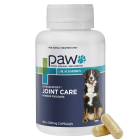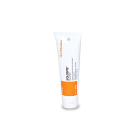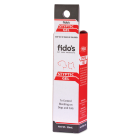
Using Corticosteroids
Corticosteroids can be used orally or topically, or it can be injected. Topical applications, which come in the form of a cream, are usually used on both the skin and the eye. Injections and oral applications, on the other hand, are used for pain and inflammation in the joints and muscles. Common Corticosteroids used to assist with muscles and joint pain are prednisone, prednisolone, triamcinolone, and dexamethasone.
Corticosteroids are generally administered only in emergency situations. Since these steroids do have some serious potential side effects, they usually should not be used to relieve chronic pain over a period of time. Since these steroids are so powerful, you usually need to get a prescription in order to obtain them. Your veterinarian will most likely want to monitor the blood levels of your pet closely while it takes this steroid in order to ensure its liver stays healthy. Some even recommend supplementing the steroid with SAMe because it can help protect the liver.
The most common uses of corticosteroids are controlling allergic reactions, reducing pain, and reducing inflammation. Sometimes, they are used in life-threatening situations in order to control swelling. Extreme itching and pain associated with cancer can also be controlled with corticosteroids..

Side Effects of Corticosteroids
Every cell of your pet’s body, including organ cells, is affected by corticosteroids when they are administered. This can cause the liver to swell or for blood pressure to rise. It can also affect the immune system, making it take longer to fight infections and to heal from wounds. Thyroid suppression and stomach ulcers are other potential side effects.
Some pets taking the steroids drink and urinate more frequently. Some pets retain fluids and eat more while taking corticosteroids. In addition, loss of hair, thinning skin, and weakened bones are possible side effects. For pets that are pregnant, taking corticosteroids can cause the fetus to be miscarried or malformed. Your pet’s emotions can even be affected by the steroids, making them seem unusually happy or irritable. Because of all the potential side effects, it is important to follow your veterinarian’s instructions closely and to only use the drugs for as long as necessary.



